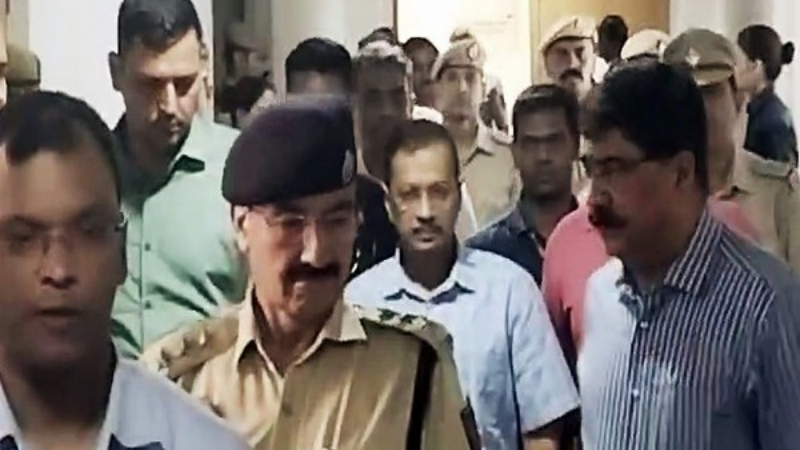In a significant legal development, the Supreme Court of India has granted bail to Delhi Chief Minister Arvind Kejriwal in the high-profile excise policy case. The decision, delivered on September 13, 2024, has been met with a mix of relief and controversy, reflecting the complex nature of the case and its implications for Indian politics.
Background of the Case
The case revolves around alleged irregularities in the Delhi excise policy, which was introduced in 2021 and subsequently scrapped in 2022 following a directive from the Lieutenant Governor for a Central Bureau of Investigation (CBI) probe. The policy was intended to reform the liquor trade in Delhi, but it quickly became embroiled in allegations of corruption and favoritism.
The CBI and the Enforcement Directorate (ED) have been investigating the case, focusing on claims that the policy was amended to grant undue benefits to certain license holders. Kejriwal, along with several other Aam Aadmi Party (AAP) leaders, has been accused of being involved in these irregularities.

The Arrest and Legal Battle
Arvind Kejriwal was arrested by the CBI on June 26, 2024, a move that his legal team argued was unwarranted and politically motivated. Senior advocate Abhishek Manu Singhvi, representing Kejriwal, contended that the procedural safeguards under the Criminal Procedure Code (CrPC) were breached during the arrest. Despite being granted bail in a related case by the ED, Kejriwal remained in custody due to the CBI’s charges.
The Delhi High Court had earlier upheld Kejriwal’s arrest and denied his plea for bail, prompting his legal team to approach the Supreme Court. The apex court’s decision to grant bail came after a series of hearings where both sides presented their arguments.
Supreme Court’s Verdict
The Supreme Court bench, comprising Justices Surya Kant and Ujjal Bhuyan, delivered the verdict, emphasizing the importance of personal liberty and a speedy trial. The court directed Kejriwal’s release on a bail bond of Rs 10 lakh and two sureties. Additionally, the court imposed conditions on Kejriwal, including a prohibition on making public comments about the case and restrictions on visiting the Chief Minister’s Office (CMO) to sign work-related files during the bail period.
The bench underscored that the judgment would contribute to the evolution of criminal law while ensuring that it does not demoralize the subordinate judiciary. The court’s observation came after the CBI warned that a decision in Kejriwal’s favor might set a precedent that could undermine the authority of subordinate courts.
Reactions and Implications
The Supreme Court’s decision has elicited varied reactions from different quarters. AAP leaders and supporters have hailed the verdict as a triumph of truth and justice. Former Deputy Chief Minister Manish Sisodia expressed his gratitude to the apex court, stating, “In the battle against lies and conspiracies, truth has once again emerged victorious.” AAP leaders Atishi and Raghav Chadha echoed similar sentiments, emphasizing that “truth may face harassment, but it cannot be defeated”.
On the other hand, critics of Kejriwal and the AAP have raised concerns about the implications of the bail decision. Some political analysts argue that the case highlights the need for greater transparency and accountability in the formulation and implementation of public policies. The opposition parties have also seized the opportunity to criticize the AAP government, accusing it of corruption and mismanagement.
Legal and Political Ramifications
The Supreme Court’s verdict is likely to have significant legal and political ramifications. Legally, the decision reinforces the principle that bail should be the norm, with jail being an exception, even in cases involving stringent laws like the Unlawful Activities (Prevention) Act (UAPA) and the Prevention of Money Laundering Act (PMLA). The court has also urged lower courts to exercise caution when staying bail orders, highlighting the importance of upholding personal liberty.
Politically, the case has put the spotlight on the AAP government and its handling of the excise policy. The allegations of corruption have dented the party’s image, and the legal battle has been a major distraction for the Kejriwal administration. However, the bail decision provides a temporary reprieve for Kejriwal, allowing him to focus on governance and party affairs.
Future Prospects
As the legal proceedings continue, the focus will now shift to the trial phase, where the merits of the case will be examined in detail. Kejriwal’s legal team is expected to mount a robust defense, challenging the evidence presented by the CBI and ED. The outcome of the trial will have far-reaching implications for Kejriwal’s political career and the future of the AAP.
In the meantime, the Supreme Court’s decision serves as a reminder of the delicate balance between law enforcement and personal liberty. The case underscores the need for a fair and transparent legal process that respects the rights of the accused while ensuring accountability and justice.
For More News Update, Follow Read Now News
